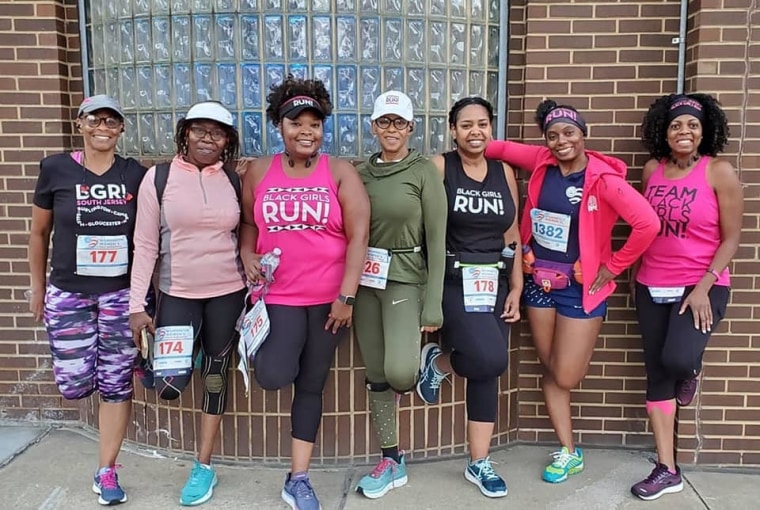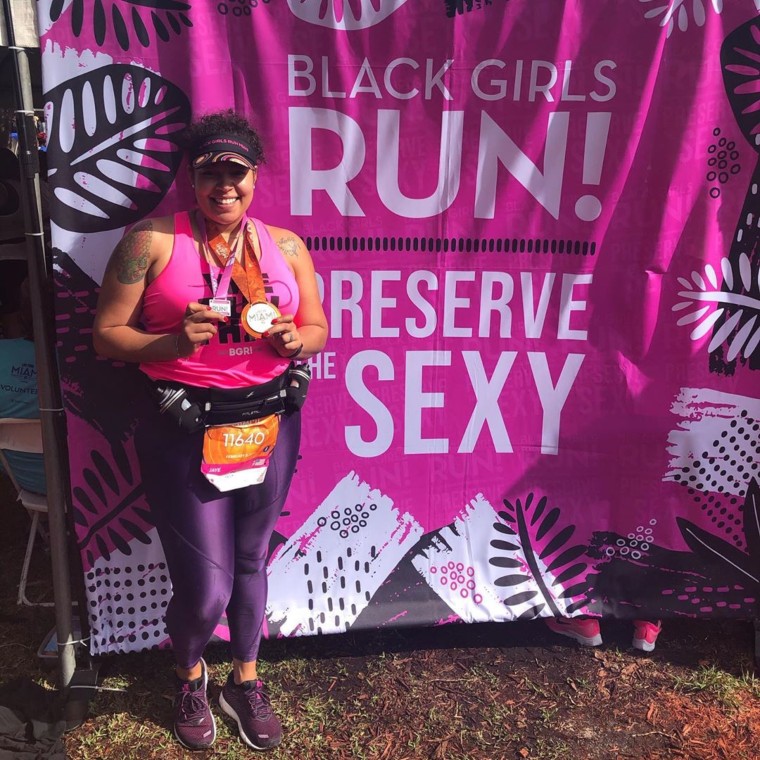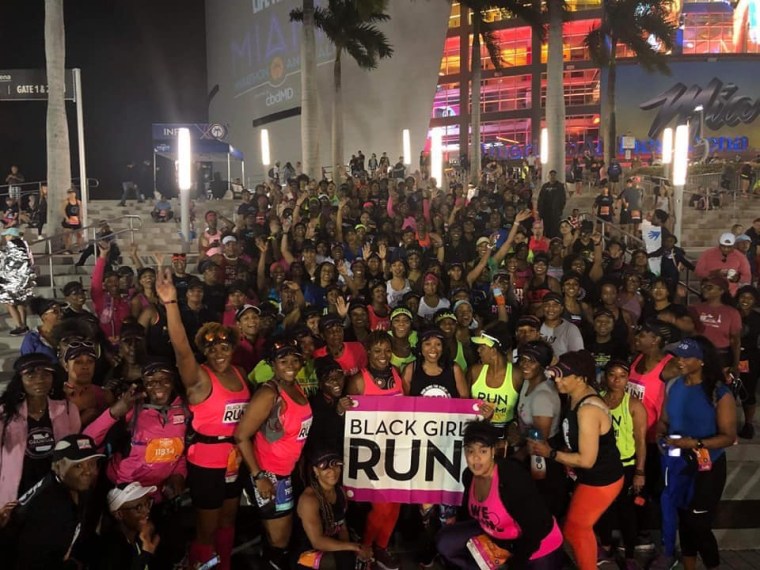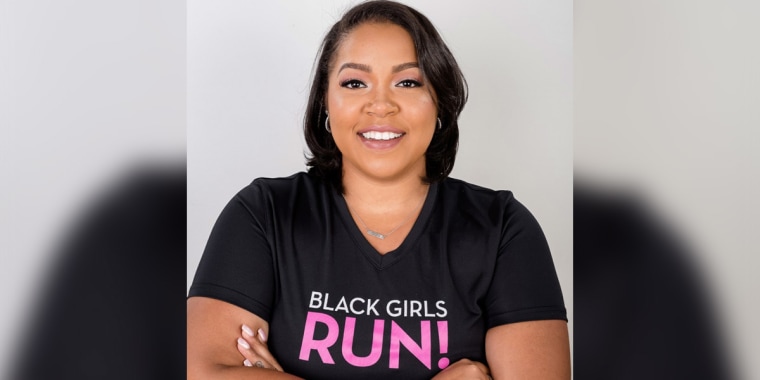Jay Ell Alexander grew up in an active household in Norfolk, Virginia. Her mom was even a physical education teacher at a local university. But Alexander didn’t turn to running as a fitness regimen until 2010, when she hit her heaviest weight after finishing grad school.
“A lot of my mental barriers were [thinking], ‘Can I do this?’ or ‘Do I feel like doing this?’” Alexander, now 32 years old, remembered. “My body was able to do it, but I was doubting myself even before really fulfilling my own capabilities.”

Now as the CEO of BlackGirlsRun, an organization dedicated to encouraging African-American women to prioritize a healthy lifestyle through fitness, Alexander’s mission is to help black women overcome their anxieties about lacing up and hitting the pavement. And she’s determined to bust the myth that black girls don’t run.
“We are redefining what it means to be a runner,” said Alexander, who is based in Richmond, Virgnia. “It does not have to be a white woman. It doesn't have to be someone under 150 pounds.”
Having spent six years with the organization before taking the reins in 2018, Alexander is working to make BlackGirlsRun a national movement. The group already boasts 250,000 members in 35 states, with about 75 running groups that meet throughout the week to organize group runs. With its members, run coordinators, and group leaders called ambassadors, the group is organizing participation in 10 races across the country this year. They most recently hosted their first national meet-up of the year at the Life Time Miami Marathon Feb. 9, which drew around 400 BlackGirlsRun members among its 20,000 participants.
“As black women, we’re realizing that health comes before beauty,” Alexander said. “Very often we spend a lot of money just on our hair, and that more women are adapting hairstyles that allow them to be healthier and active. So as a community, those are constant conversations of, do you want to spend money on blood pressure medications, or do you want to spend money on getting your hair done every week? And I think those are constant conversations that have to happen for our community to break down those misconceptions that black women don’t run.”
BlackGirlsRun was created in 2009 to tackle the obesity epidemic in the African-American community by providing resources and encouragement to women runners. According to the U.S. Department of Health and Human Services Office of Minority Health four out of five African-American women are overweight or obese. Research from the Minority Health Office also shows that African-Americans in their 20s, 30s, and 40s are more likely to live with or die from conditions that typically affect older whites, like heart disease, stroke, or diabetes.

“There’s a lot of things as community we don’t have that has kept us from being in this kind of health and fitness space,” Alexander told Know Your Value. “We wanted to bring awareness that black women are at the bottom of the totem pole in terms of being the healthiest community. And so that’s where the name comes from.”
While women of all races are welcome in the group, the default rule for runs is no men are allowed.
“I think it just tears down those walls of intimidation, [like] the man is going to outrun me, outdo me,” Alexander said. “You can just come out and be yourself. You don’t feel like you don't have to get dolled up or look a particular way. We meet you where you are. We accept you where you are.

The organization has grown since its birth in 2009 by launching a nonprofit arm in 2018 and winning a Facebook grant to support the new endeavor. Through it, BlackGirlsRun was able to roll out training programs in six cities nationwide and hire ambassadors to run the programs. Twenty-five women in each of the six cities were given stipends to attend a 12-week training program to run their first 5K race. They were paired with a nutritionist and a run coach and given running shoes, clothes, and healthy snacks during their training. “That was our first glance at what the foundation will hopefully evolve into,” Alexander said, noting that her long-term goal is to secure funding to hire their ambassadors to carry out training programs on a regular basis. (Currently almost all are volunteers) She also wants the organization to offer financial support to its members.
“The running sport is not cheap,” Alexander said. “An average half marathon can cost anywhere from 85 to 100 bucks, [and] an average pair of good running shoes cost $150. So we want to create a capacity where anyone can come join BlackGirlsRun but then also be able to receive the support and resources to actually maintain being healthy and active.”
She said it’s especially important for women to take the lead in committing to a healthy lifestyle. Then, she said, the effects often reverberate throughout the community.
“Very often, they’re the one that is deciding the meals, is going grocery shopping, is preparing the meals and so forth. So if those conversations are happening within BlackGirlsRun, [like] ‘Hey, we’re going to eat a salad for dinner,’ or, ‘We’re going to not have this baked potato tonight”... then it can begin to translate into the home, into the lives of our husbands [and] to the next generation with our children as well.”
